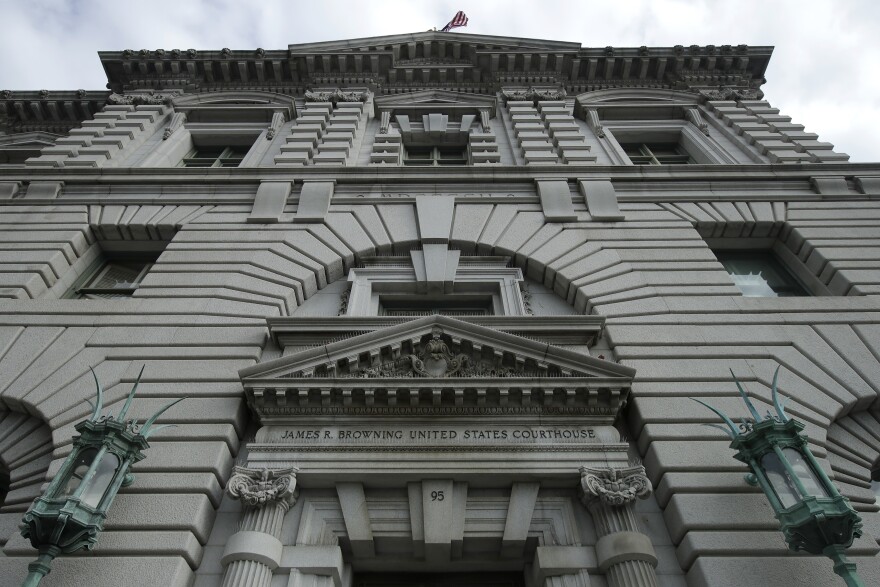A federal appeals court expressed skepticism Thursday toward a temporary order blocking President Donald Trump from deploying members of the Oregon National Guard to Portland city streets.
Attorneys for the Trump administration argued before a three-judge panel that the president has the authority to federalize and deploy the Guard over Gov. Tina Kotek’s objections.
They asked the U.S. Court of Appeals for the 9th Circuit to overturn a temporary restraining order issued Saturday by U.S. District Court Judge Karin Immergut. Federal law allows the president to deploy Guard members if there’s an invasion from a foreign nation, a rebellion or if the president cannot carry out federal laws with “regular forces.”
Immergut, who was nominated by Trump, found the administration did not clearly prove those were the conditions taking place in Portland. She said the White House, therefore, could not send in troops to deal with protests at Portland’s U.S. Immigration and Customs Enforcement building.
“The President’s determination was simply untethered to the facts,” Immergut wrote in her initial ruling.
The appeals court panel indicated in its questioning that the president has sweeping authorities. The panel was made up of Judges Ryan Nelson, Bridget Bade and Susan Graber. Nelson and Bade were appointed by Trump during his first term, while Graber — a former Oregon Supreme Court justice — was appointed by President Clinton.
The judges also used Thursday’s hearing to question whether the judiciary has the authority to put limitations on National Guard deployments if the president believes it is necessary.
Eric McArthur, with the U.S. Department of Justice, told the appeals court the president wins on both the law and the facts on the ground in Portland.
McArthur argued the law authorized the president to call up the National Guard when “violence and threats of violence directed at federal officials and facilities has significantly impeded federal law enforcement.”
Attorneys for the state of Oregon and city of Portland acknowledged occasional violence had happened at ongoing ICE building protests, but argued that sending the military for what is largely protected First Amendment conduct is an overreach of executive power.
Stacy Marie Chaffin, an assistant attorney general with the Oregon Department of Justice, acknowledged the president is allowed great deference when federalizing the National Guard.
“That deference has a limit and that limit is this case where the president’s determinations are untethered from reality,” Chaffin said.
Protests at the ICE facility have frequently seen fewer than two dozen people gather nightly since June. One a few nights those protests drew hundreds of people, and federal officers have used tear gas and other crowd control weapons to disperse people.
A cadre of conservative social media influences, Department of Homeland Security Secretary Kristi Noem and the president have repeatedly claimed that Portland is under siege. The president has made similar claims about Memphis and Chicago, where National Guard troops from Texas were deployed as of Thursday morning to assist federal law enforcement.
The appeals court judges did not immediately issue a ruling, but said that they would offer their opinion as quickly as possible.
This story comes to you from the Northwest News Network, a collaboration between public media organizations in Oregon and Washington.



